Words & Photography by The Punch
Koman Wahyu Suteja, a third-generation family who was involved in art dealings, was born and grew up in Ubud, Bali, where art and tradition shaped his early life. After studying business in Jakarta, he worked for an American company in West Java, making ski jackets–his time away from Bali made him realize just how exceptional the island truly was. In 1995, with a newfound appreciation for his homeland, he began exploring ways to honor Ubud’s cultural legacy. Inspired by his grandfather I Wayan Neka, a revered artist who had his sculpture exhibited at the 1964 New York World Fair, and his father Suteja Neka, a founder of Neka Art Museum in Ubud, Koman saw an opportunity to give new life to Bali’s art scene.
He noticed that while Ubud attracted art lovers from all over, contemporary Indonesian works were underrepresented. This observation led him to open the Komaneka Gallery near the famous Monkey Forest, a two-story space dedicated to contemporary art. Here, he nurtured young artists from art schools in Yogyakarta, Bali, and Bandung, not just to showcase their work, but to inspire conversations about culture, politics, and society. The gallery became a place where tradition met bold, modern expression, grounded in a deep cultural foundation.
An empty room behind the gallery sparked a new idea: to build accommodations for the artists. What began as a practical gesture soon evolved, attracting collectors, professionals, and visitors who embraced the spirit of the place. By 1998, the original seven rooms had expanded to 20, developing into the resort known today as Komaneka, where art, culture, and hospitality seamlessly converge. Under this brand of boutique upscale resorts, there are five locations: Monkey Forest, Tanggayuda, Bisma, Rasa Sayang, and Keramas Beach where Komaneka can be found, each striving to preserve Bali’s cultural and local heritage.
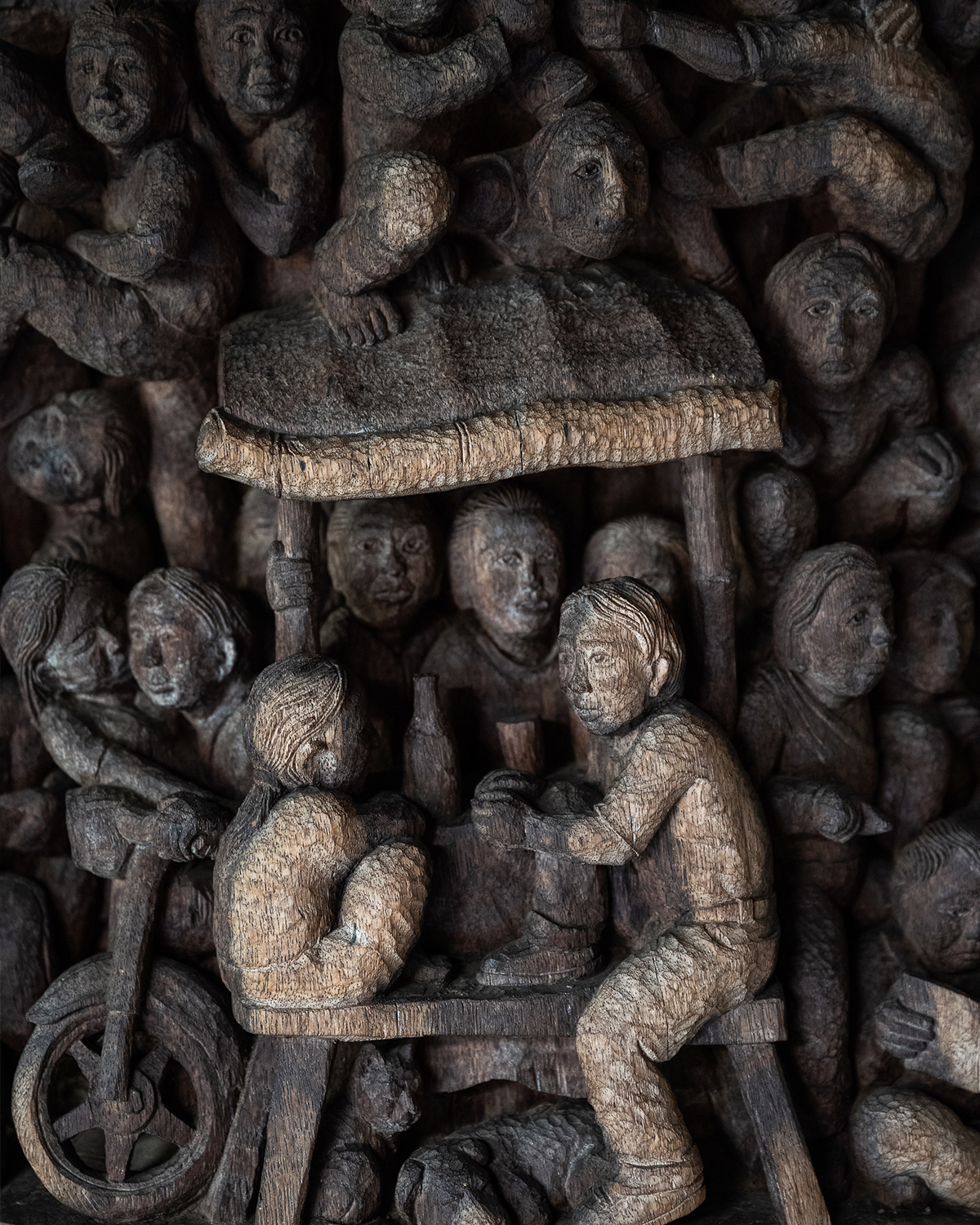
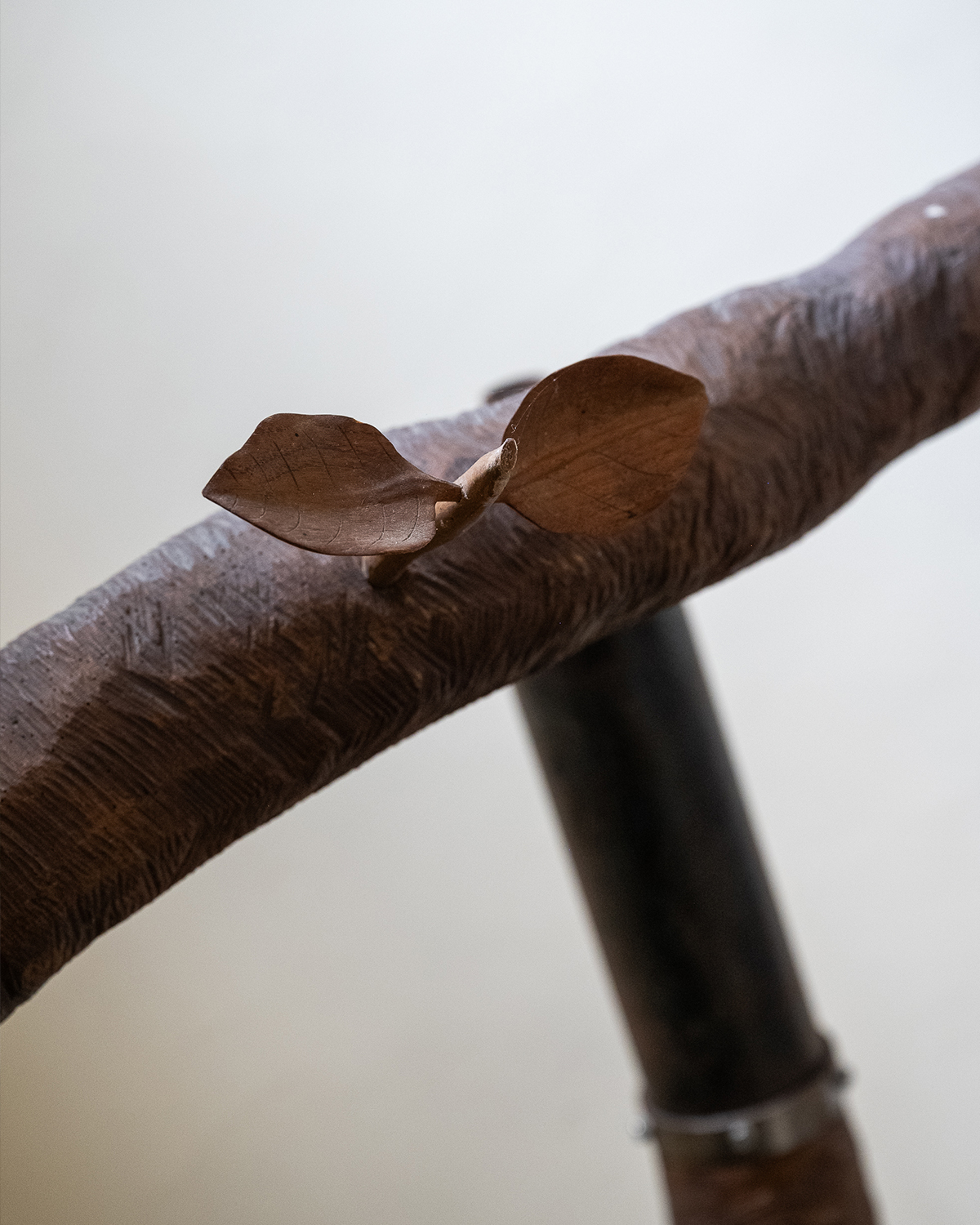
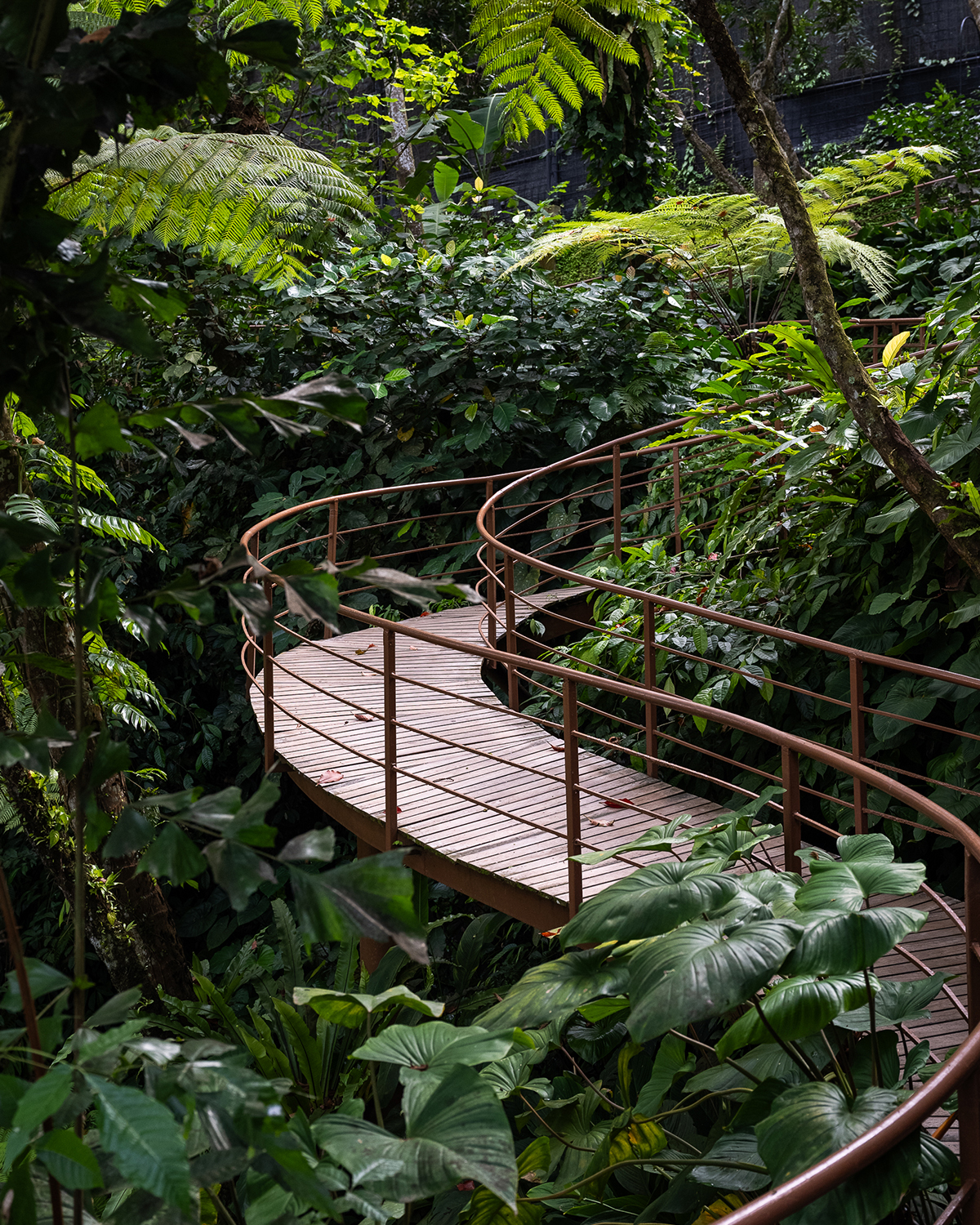
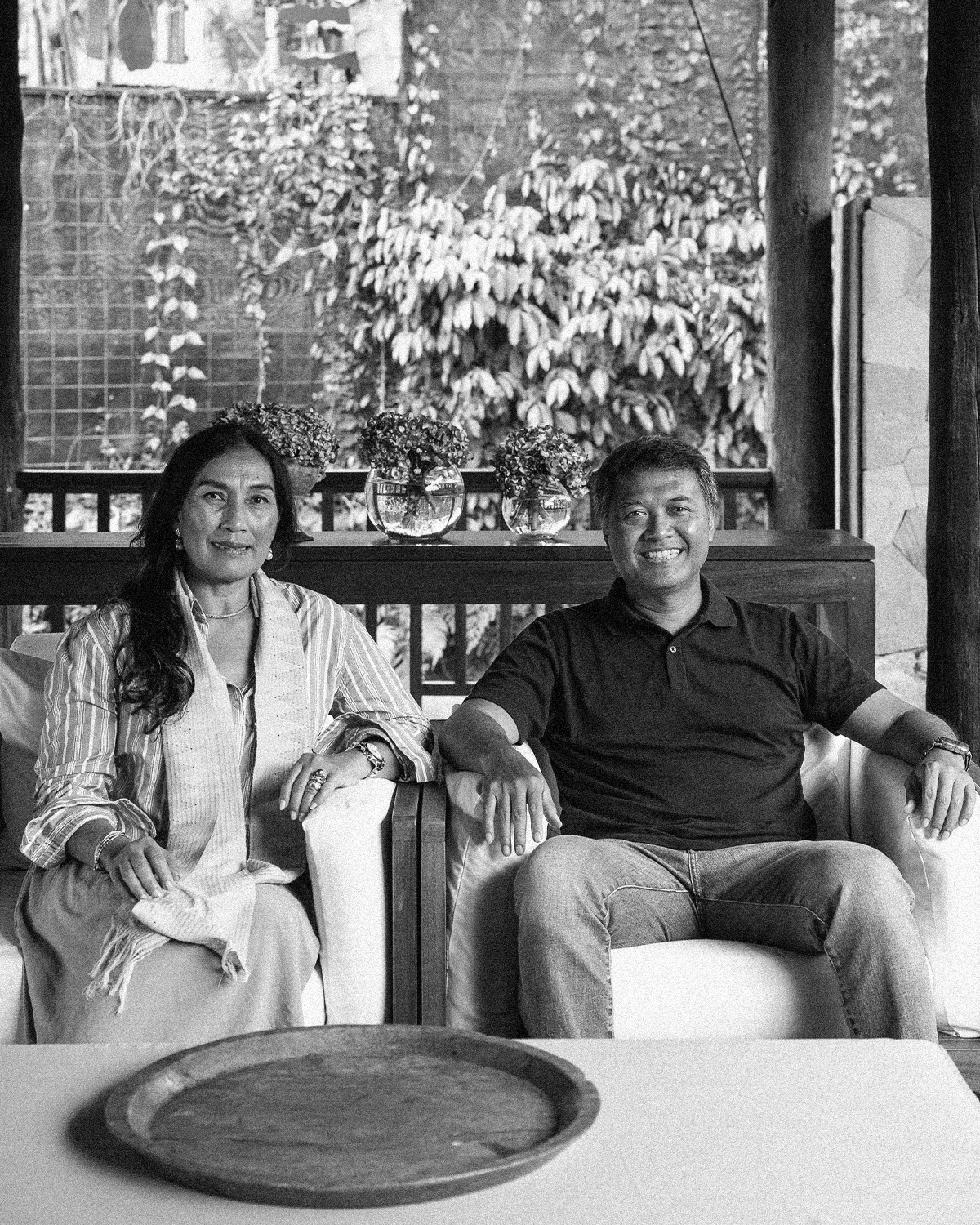

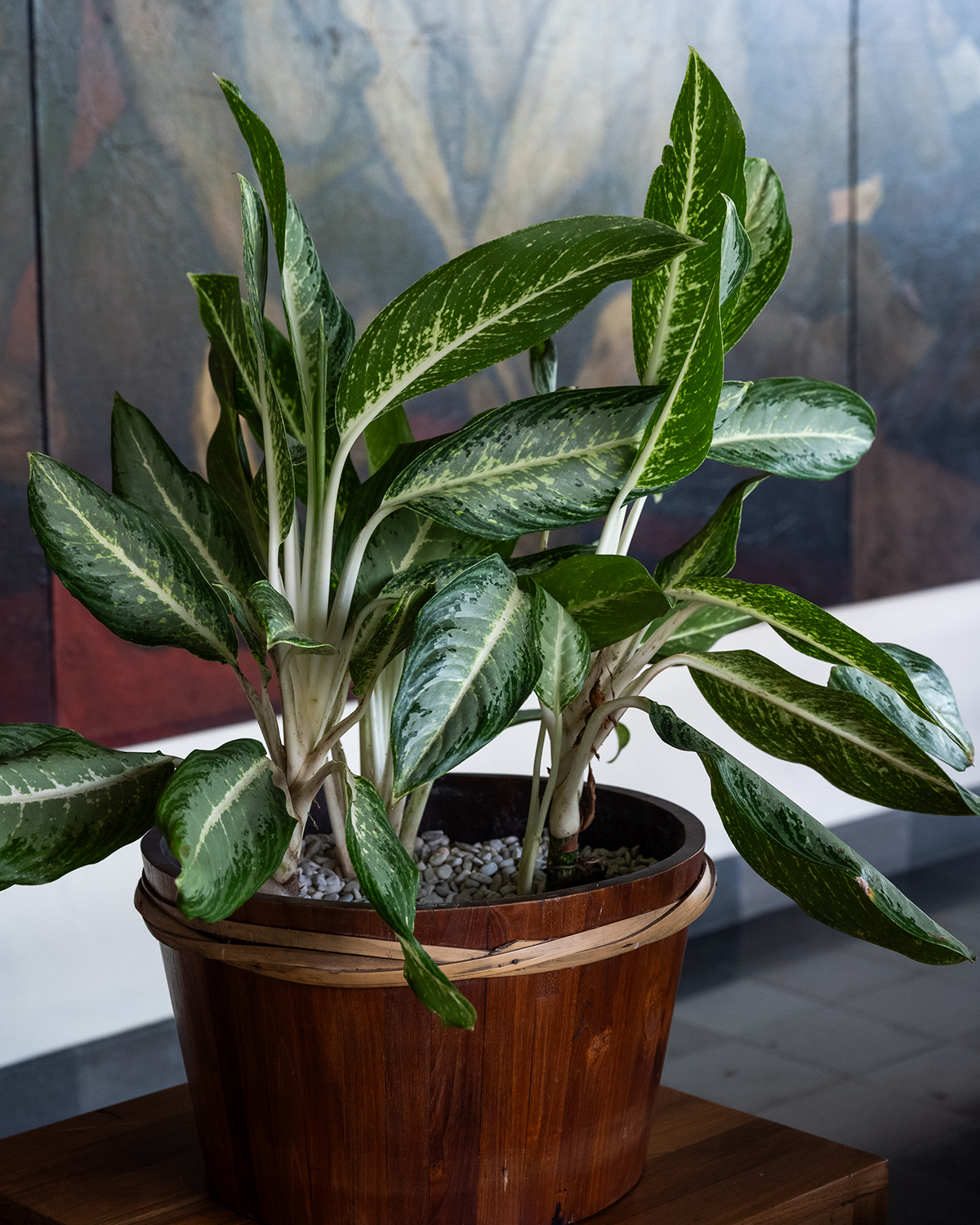
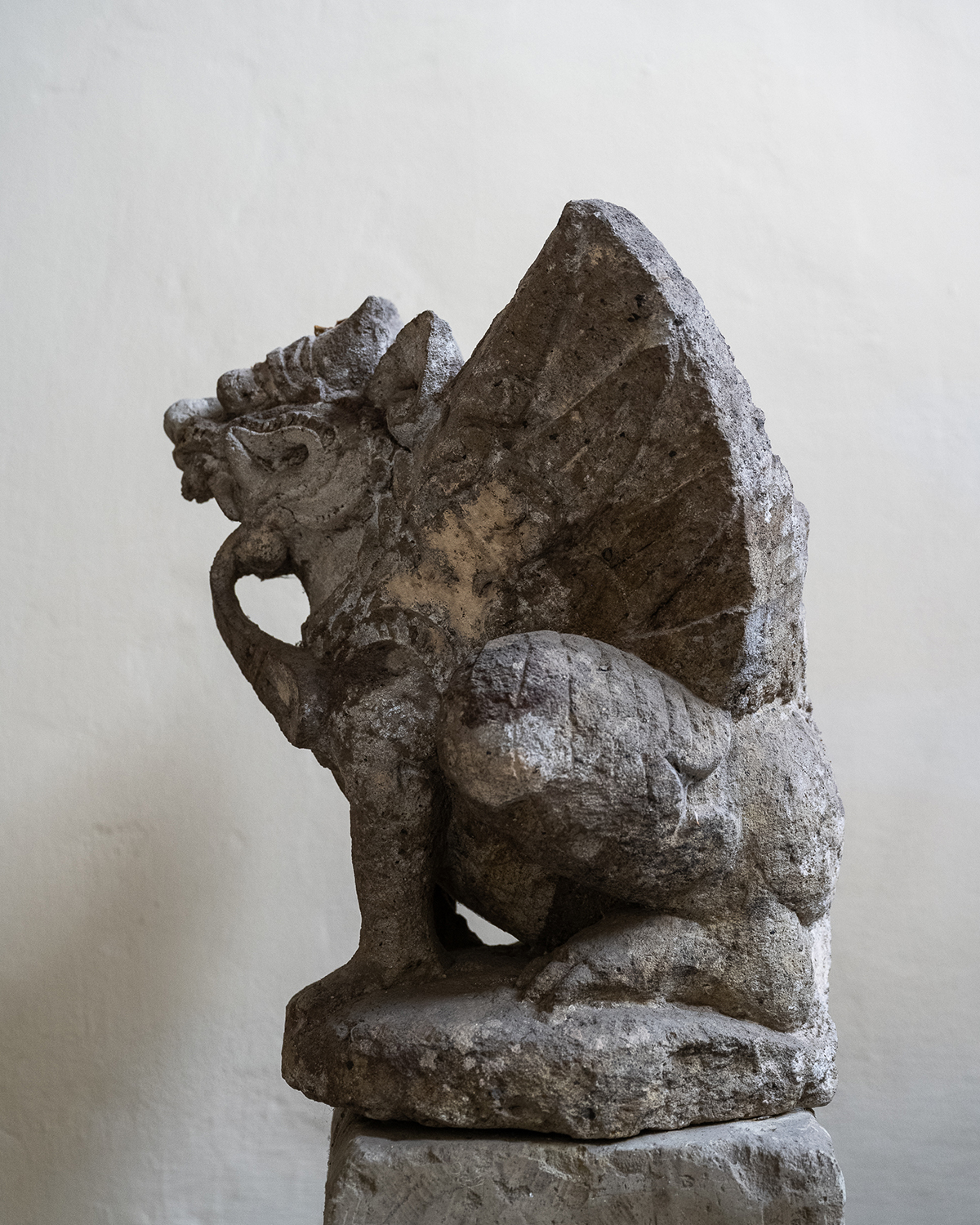
A JOURNEY OF VISION AND CULTURE
Following the success of the first Komaneka in 1988, Koman together with his wife Mansri Trisniawati and his team expanded swiftly. A year later, he built a new hotel, and two years after that, he opened a second boutique property, with a focus on personalized service. His local roots and connection to Ubud, together with his passion for art, set Komaneka Resorts apart. Many of Indonesia’s most renowned artists began their journeys at his gallery, turning humble beginnings into celebrated careers.
When constructing the second Komaneka hotel, Koman’s mother, a Balinese architect, imparted in him a profound ethos: “Cherish Mother Earth, for she sustains you”. From the start, Koman made strict environmental guidelines–no littering in the river, diligent waste collection, and a significant reduction of plastic use. He even enforced a rule that fined contractors 5,000 rupiahs for every cigarette butt found on site, making sure that attention to waste management became second nature.
In Bali, land use is steeped in sacred rituals. Before building, one must first seek permission from the land, then lull it into a state of relaxation–“anesthetizing it,” is how Koman describes this. Only then can the digging and shaping begin. As structures rise, a roof marks the midpoint, and the building is treated like a living being–with a head, body, and feet. Ceremonies follow each stage of construction, honoring the spirit of the land and repeating this sacred process whenever it is time to build, cut, or restore.
CRAFTING HERITAGE & TRADITION
In Bali, every construction is part of a living body, an extension of the island’s spirit. Respecting this connection is important, for the land beneath gives life to what stands above. After a building takes shape, the next step is building the business while upholding the Balinese Tri Hita Karana philosophy. Koman looked for staff fresh out of school, unburdened by previous experiences, allowing him to shape their understanding from the start. He would meet with guests personally, guiding his team to build a deep love for the place and the practice of genuine hospitality.
Education was at the heart of his approach–combining professional training in hotel management with lessons in respecting the land, the people, and the guests. Koman preferred hiring staff who were single, giving him the chance to impart his vision and see them carry it into their lives. Today, many of his staff get married and live in homes inspired by Komaneka’s design, a simple yet functional building with gardens of local plants, reflecting the principles instilled over three decades.
For almost 30 years, this commitment has gone beyond the resort walls, creating environmental awareness and preserving Bali’s essence. The philosophy reaches into every corner–training not just for work, but for life, grounded in a deep respect for the land and the traditions that sustain it.
A HOME AWAY FROM HOME
The Komaneka Resorts operate on a deeply personal level–right down to how English is taught to the staff, which is a more casual approach. The uniforms are kept simple and unisex, with neutral tropical tones that create a sense of ease, nurturing trust and comfort between guests and staff. Koman’s philosophy balances professionalism with a family-like atmosphere, aiming to make visitors feel truly at home. Here, guests don’t think twice about locking their doors; the environment invites them to feel at ease. Many who return have become lifelong friends, some even meeting Koman beyond Bali’s shores.
The foundation of these friendships was laid in the early days, through shared love for art. Exploring museums and discovering new artworks together became a unique way for Koman to bond with his guests. This approach to hospitality is why Komaneka will always remain intimate and special; Koman and Mansri are committed to building no more than five resorts, ensuring he can maintain the closeness and presence that make each place feel like a second home.
SUSTAINABLE PRACTICES & CLAN RESPONSIBILITY
Environmental responsibility has been in Koman’s philosophy from the start, a principle placed by his architect mother, whose influence shaped his deep respect for nature. At Komaneka, this extends beyond the resorts’ grounds; it’s in the mindset he creates among his staff. He focuses on a long-term perspective, where the value of the environment, culture, and heritage is not just understood but put into action. As chairman of the Dyatmika School, Koman also shares this with children, encouraging them to become advocates for the planet, just as he encourages his staff to inspire others.
Komaneka’s approach to resort development shows this commitment. The 12-acre Tanggayuda property has just 35 rooms, while the 21-hectare property at Keramas Beach offers only 37, making sure the land remains as untouched as possible. It’s not just about upholding traditions or performing ceremonies–it’s about the concept behind them. Efforts like cleaning rivers alongside his team are Koman’s dedication to leading by example and making shared responsibility a culture.
Koman’s upbringing also shaped his systematic approach to spreading this awareness, influenced by his father, a teacher. His role as the elected chairman of the Pande family network of about 60,000 members across Indonesia speaks to his capacity for leadership. He visited other places like Lampung, home to the largest Balinese community outside the island, tracing his Pande clan roots–a lineage of artisans, architects, jewelers, and blacksmiths. Through these journeys, Koman continues to grow the connections that bind his family, making sure their traditions and values carry on.
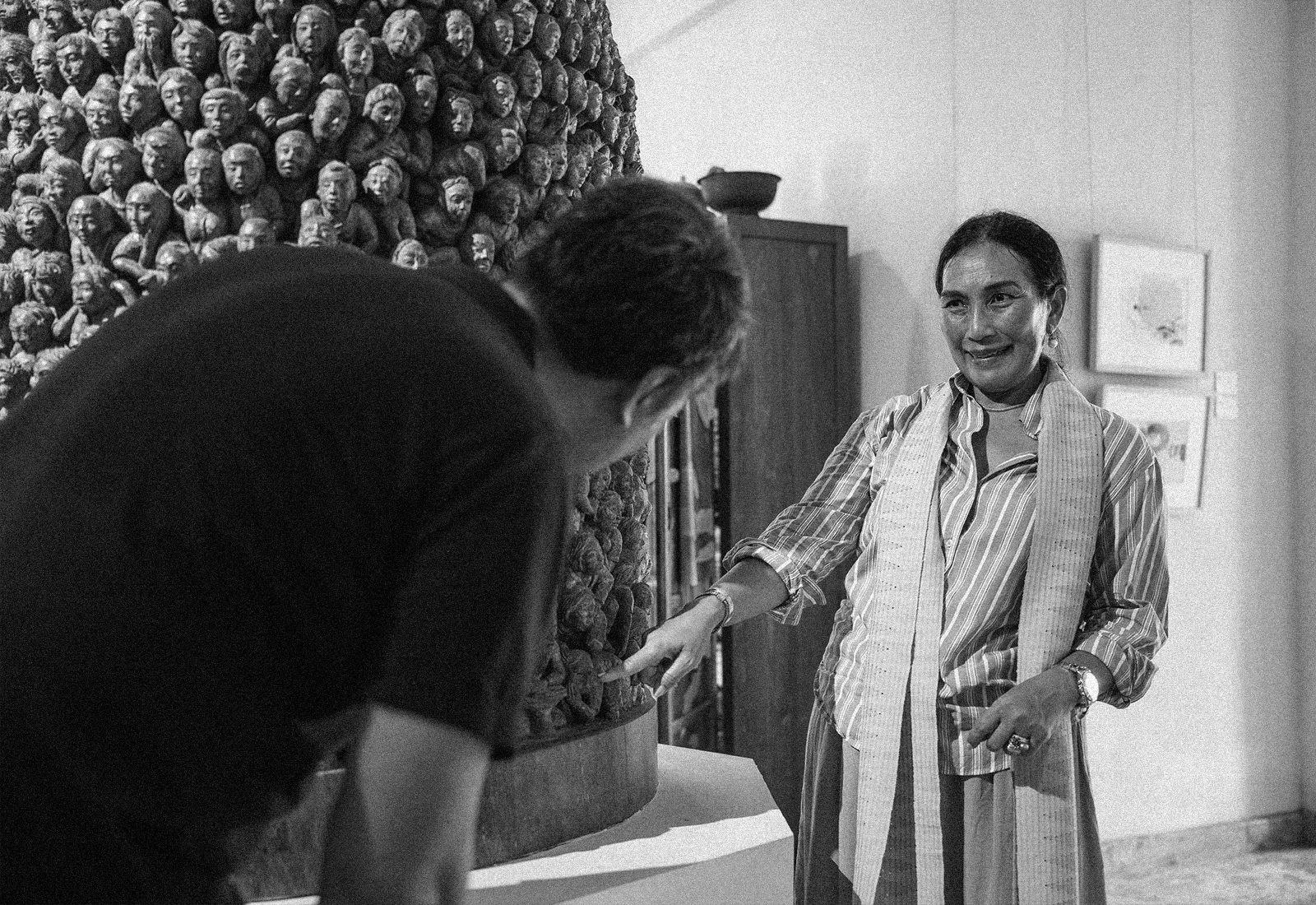
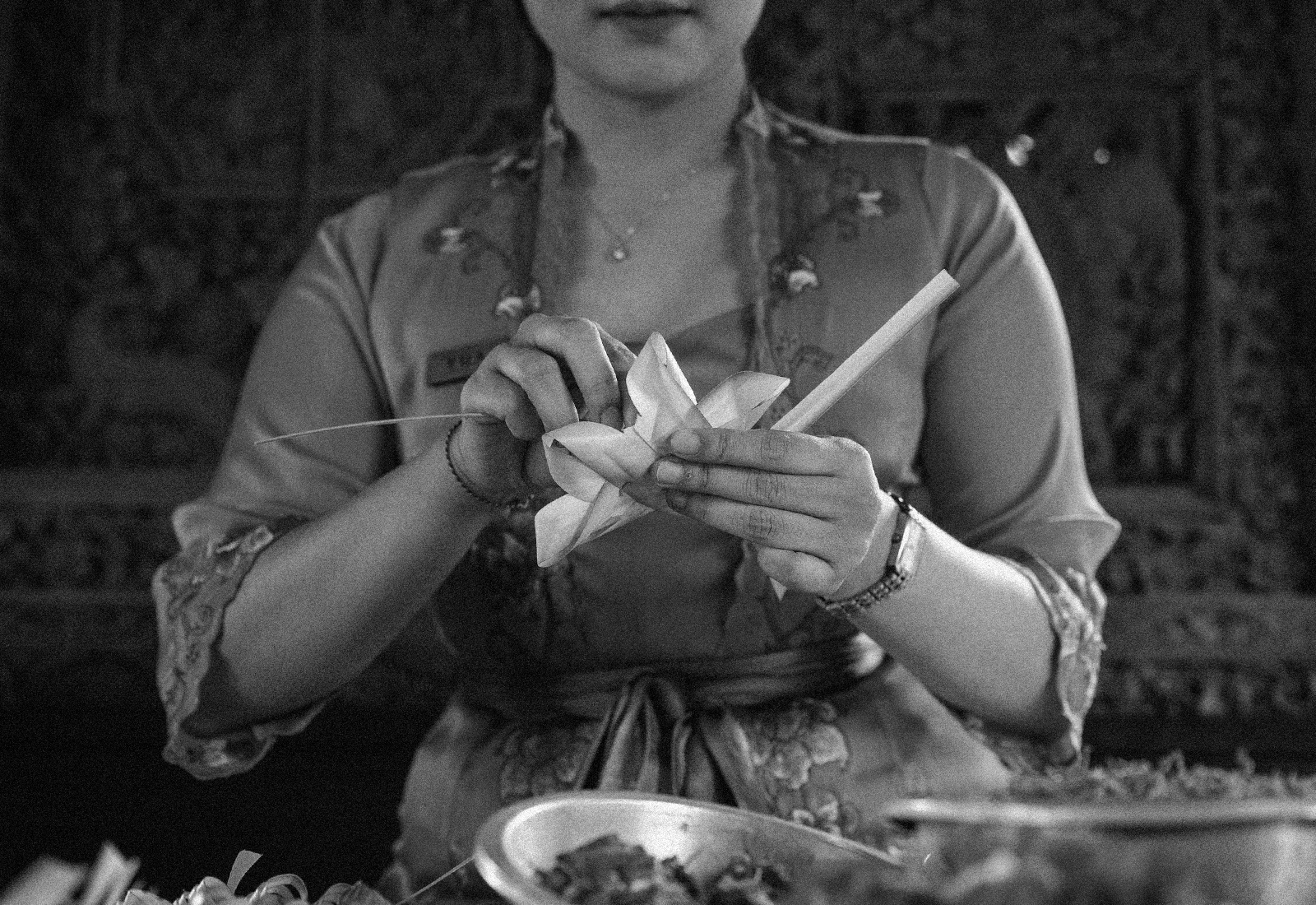
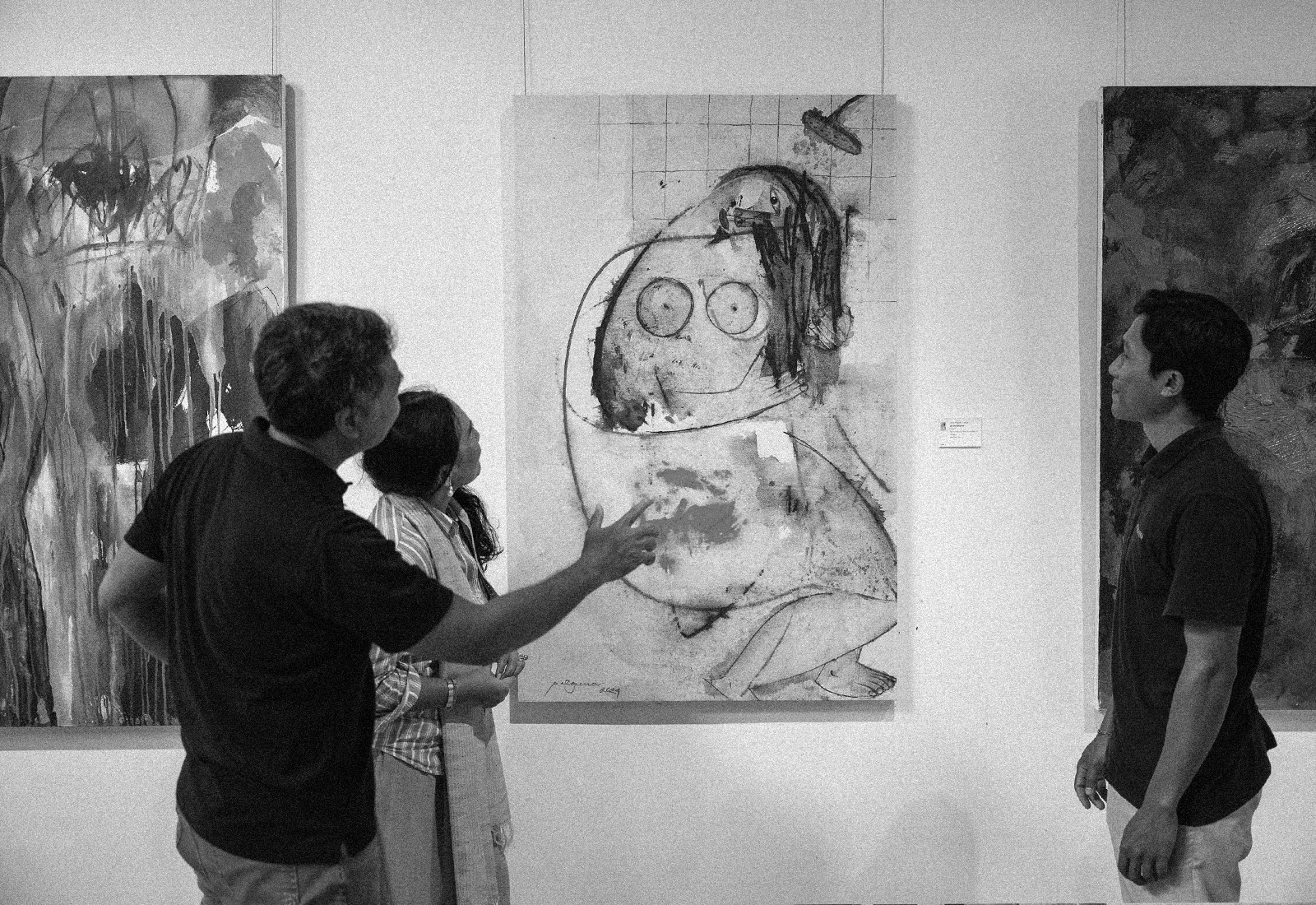
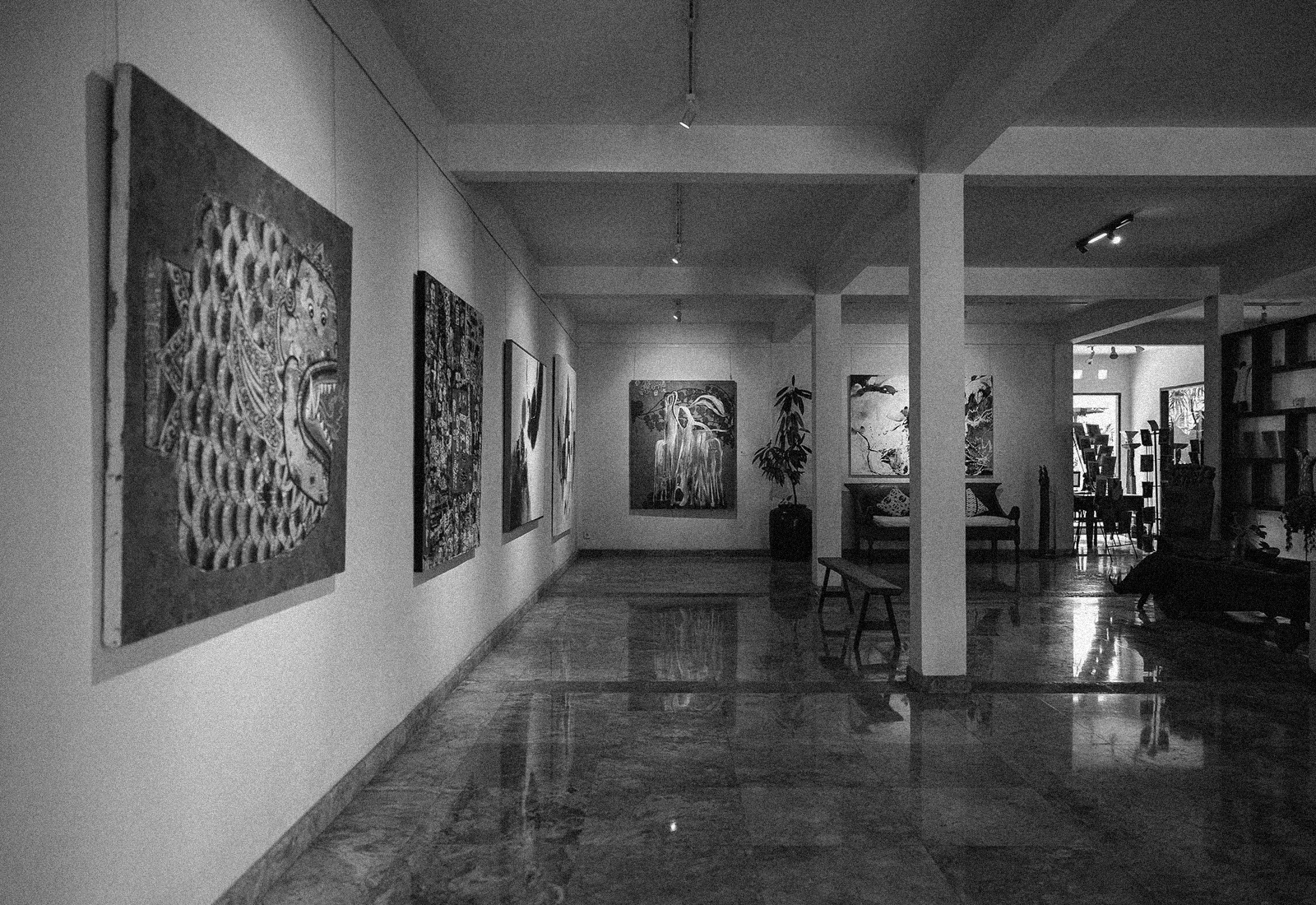
PRESERVING CULTURE IN A CHANGING BALI
Koman feels sadness over Bali’s rapid development and use of technology, yet he remains committed to educating those around him. His approach is not one of persuasion, but of open, honest dialogue–sharing his thoughts at ceremonies and gatherings, where meaningful conversations can take place. While education is important, he knows that preserving the island’s culture requires more than teaching; it demands action, which he does by engaging with local leaders across districts, planting the seeds for a future that honors Bali’s heritage.
Yet, Koman understands that the fate of Bali ultimately lies with the government and those in power, and there are limits to what any individual can influence here. Still, he is hopeful, trusting that the universe will offer its support while continuing to do his part. Speaking at every opportunity and actively involving young people in spreading the message because the younger generations will soon have to take over what we leave behind, Koman works to keep environmental awareness and cultural preservation alive, believing that these efforts, however small, can shape a lasting legacy.
KOMAN'S COMMITMENT TO BALI'S LEGACY
Koman is driven to uphold Bali’s cultural foundation and legacy by sharing knowledge with other families on the island, believing that even small acts can make an impact. Though witnessing the island’s overdevelopment brings him sadness, he remains hopeful. To him, Bali is uniquely special–no other place in Indonesia shares its exact spirit, though every region and island has its distinct beauty that deserves recognition.
The message was clear: Bali should focus on cultural tourism, not tourism culture. When tourism is rooted in culture, the scale is more contained, yet the island can still accommodate it. Initiatives like the DSDP for centralized sewage treatment are promising steps in addressing overdevelopment, but the Indonesian government must be held accountable for implementing these plans effectively.
In today’s world, where everyone has a platform through social media, Koman sees the importance of raising awareness and speaking out about what truly matters. He believes in the power of endurance and education, urging people to choose the right leaders and make their voices heard to protect Bali’s sacred environment and cultural traditions. For Koman, it’s all about creating a meaningful legacy for his children and clan, one that could inspire broader change across the island.
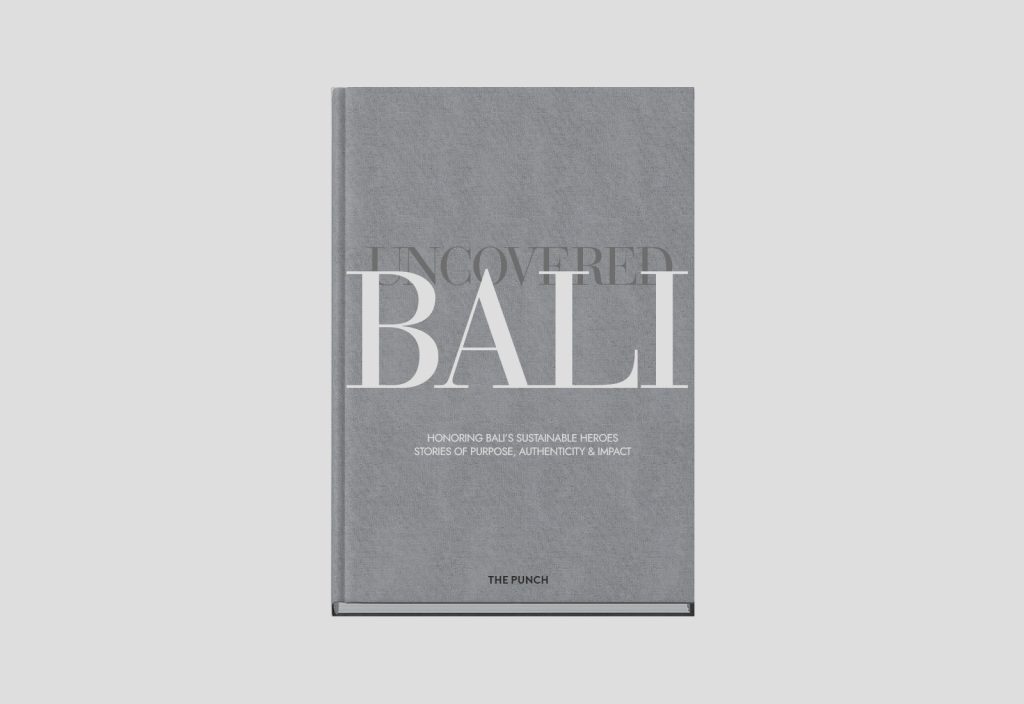
EXPLORE THE FULL STORY IN UNCOVERED BALI BOOK
Uncovered Bali is a collective project showcasing the sustainable journeys of carefully selected Bali businesses to a global audience. Each story highlights the unique impact these enterprises have on preserving Bali’s cultural and environmental heritage while driving positive change. Through this project, we aim to inspire global leaders, travelers, and communities to embrace more sustainable practices and appreciate the powerful role that local businesses play in shaping a better future.
EXPLORE THE PUNCH

